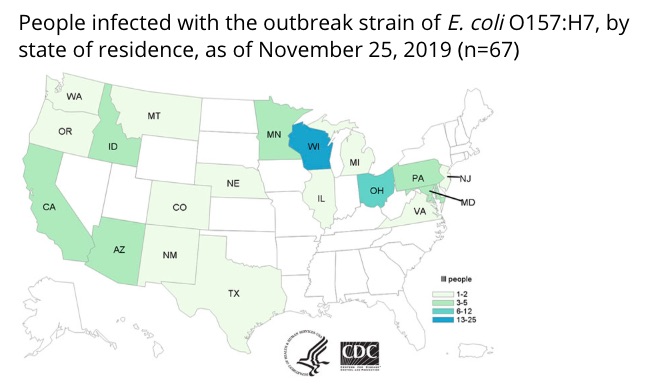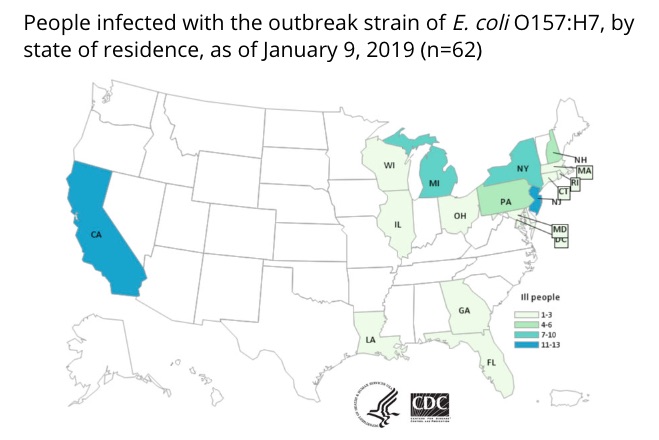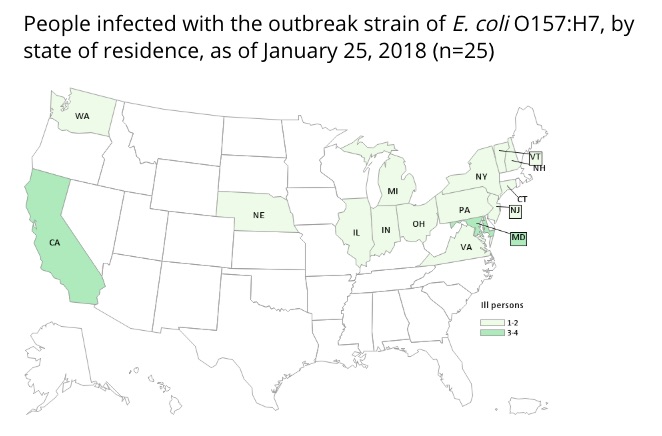Three romaine lettuce E. coli outbreaks in three years all caused by the same strain. Why don’t we know more?
That’s a question E. coli lawyer Fred Pritzker has been asking. Pritzker has represented clients in every major E. coli outbreak in the last 20 years. His clients from this outbreak include a teenager who developed hemolytic uremic syndrome (HUS), a complication of E. coli infections that is a form of kidney failure.
Pritzker points out that, unlike the first two outbreaks, a brand name product was implicated at the start of this outbreak giving investigators a good starting point for a traceback investigation that could lead to the identification of the source. Seven illnesses in Maryland, the first to be reported in this outbreak, were linked to Ready Pac Bistro Bowl Chicken Caesar Salads purchased from Sam’s Club stores.
“If we know the product source of the Maryland illnesses, why is it taking so long to identify growers and distributors? Why are supply chains so opaque and poorly documented?” Pritzker asks.
The Ready Pac salads had a “best by” date of October 31, 2019 meaning al of the illnesses occurred before that date. According to the Centers for Disease Control and Prevention (CDC), the illnesses reported in this outbreak occurred between September 24, 2019, to November 14, 2019. So, although this outbreak was made public on November 18, 2019, health officials were aware of illnesses for weeks before that.
E. coli is a reportable illness meaning cases must be reported to state health departments that perform tests to identify the genetic “fingerprint” of the strain. These fingerprints are then uploaded to a national database that is monitored by the CDC.
This means that two months after the first illness in this outbreak occurred, a fingerprint matching those responsible for two unsolved multistate E. coli outbreaks was uploaded to the database. That combined with the brand name information from Maryland should provide a road map for outbreak investigators. How then, asks Pritzker, is it possible that the most recent update from the CDC still says, “Preliminary information indicates that some of the ill people ate lettuce grown in Salinas, California. No common grower, supplier, distributor, or brand of romaine lettuce has been identified?”
“American consumers have every reason to be shocked and outraged and should demand changes,” Pritzker says.



